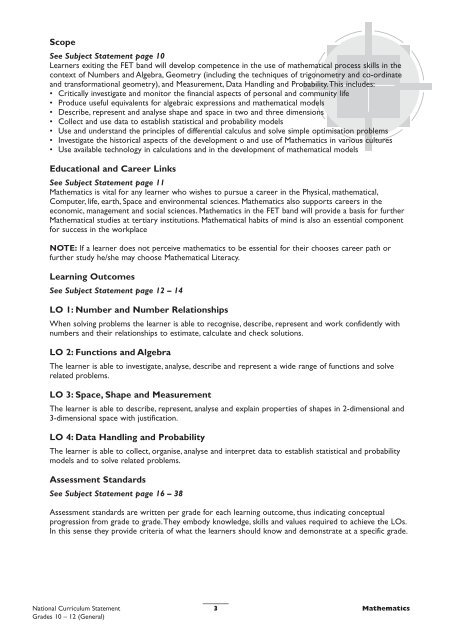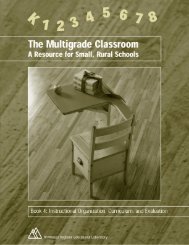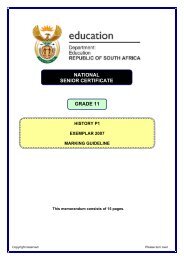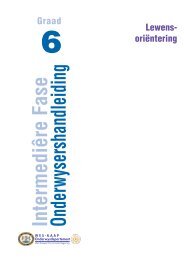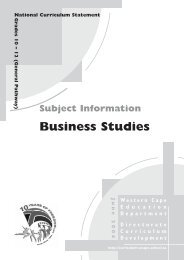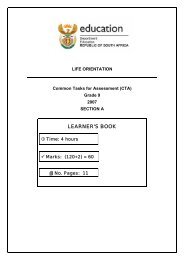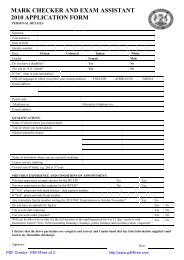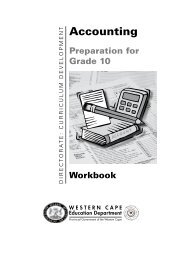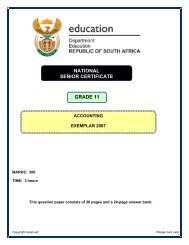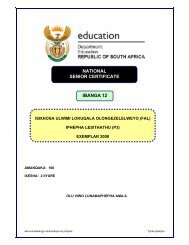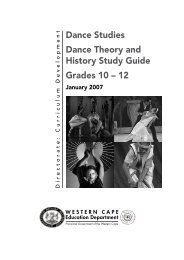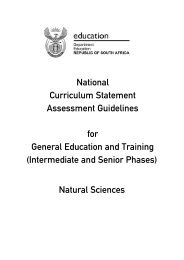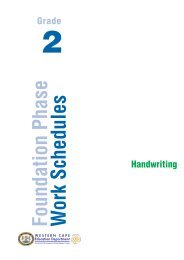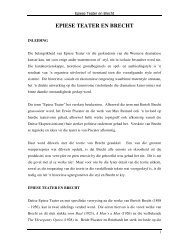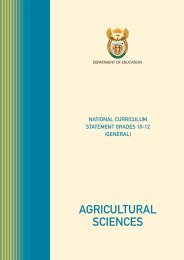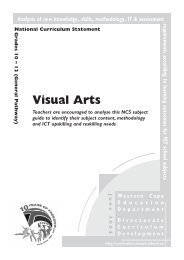Mathematics - Curriculum Development
Mathematics - Curriculum Development
Mathematics - Curriculum Development
Create successful ePaper yourself
Turn your PDF publications into a flip-book with our unique Google optimized e-Paper software.
Scope<br />
See Subject Statement page 10<br />
Learners exiting the FET band will develop competence in the use of mathematical process skills in the<br />
context of Numbers and Algebra, Geometry (including the techniques of trigonometry and co-ordinate<br />
and transformational geometry), and Measurement, Data Handling and Probability.This includes:<br />
• Critically investigate and monitor the financial aspects of personal and community life<br />
• Produce useful equivalents for algebraic expressions and mathematical models<br />
• Describe, represent and analyse shape and space in two and three dimensions<br />
• Collect and use data to establish statistical and probability models<br />
• Use and understand the principles of differential calculus and solve simple optimisation problems<br />
• Investigate the historical aspects of the development o and use of <strong>Mathematics</strong> in various cultures<br />
• Use available technology in calculations and in the development of mathematical models<br />
Educational and Career Links<br />
See Subject Statement page 11<br />
<strong>Mathematics</strong> is vital for any learner who wishes to pursue a career in the Physical, mathematical,<br />
Computer, life, earth, Space and environmental sciences. <strong>Mathematics</strong> also supports careers in the<br />
economic, management and social sciences. <strong>Mathematics</strong> in the FET band will provide a basis for further<br />
Mathematical studies at tertiary institutions. Mathematical habits of mind is also an essential component<br />
for success in the workplace<br />
NOTE: If a learner does not perceive mathematics to be essential for their chooses career path or<br />
further study he/she may choose Mathematical Literacy.<br />
Learning Outcomes<br />
See Subject Statement page 12 – 14<br />
LO 1: Number and Number Relationships<br />
When solving problems the learner is able to recognise, describe, represent and work confidently with<br />
numbers and their relationships to estimate, calculate and check solutions.<br />
LO 2: Functions and Algebra<br />
The learner is able to investigate, analyse, describe and represent a wide range of functions and solve<br />
related problems.<br />
LO 3: Space, Shape and Measurement<br />
The learner is able to describe, represent, analyse and explain properties of shapes in 2-dimensional and<br />
3-dimensional space with justification.<br />
LO 4: Data Handling and Probability<br />
The learner is able to collect, organise, analyse and interpret data to establish statistical and probability<br />
models and to solve related problems.<br />
Assessment Standards<br />
See Subject Statement page 16 – 38<br />
Assessment standards are written per grade for each learning outcome, thus indicating conceptual<br />
progression from grade to grade.They embody knowledge, skills and values required to achieve the LOs.<br />
In this sense they provide criteria of what the learners should know and demonstrate at a specific grade.<br />
National <strong>Curriculum</strong> Statement 3 <strong>Mathematics</strong><br />
Grades 10 – 12 (General)


